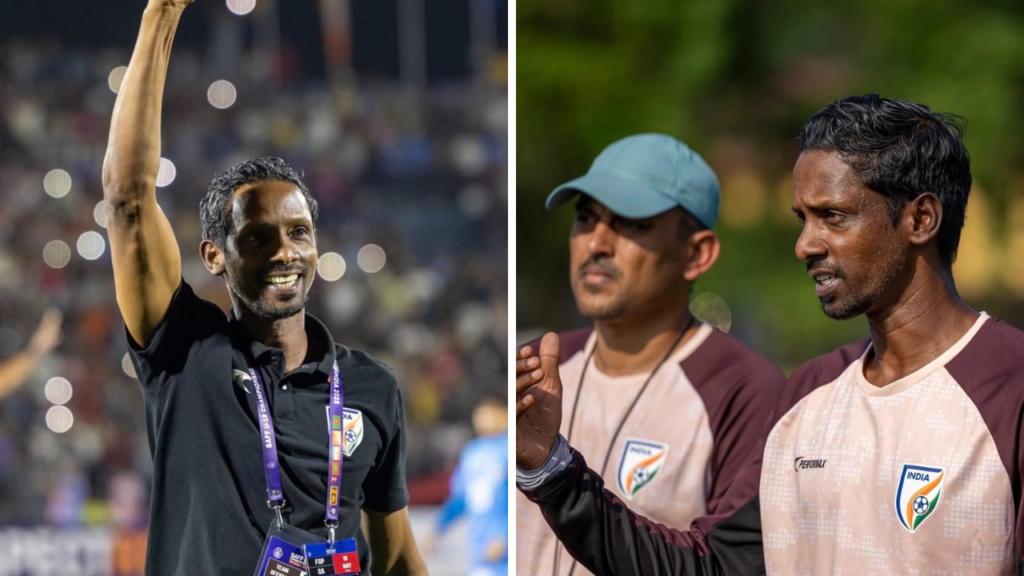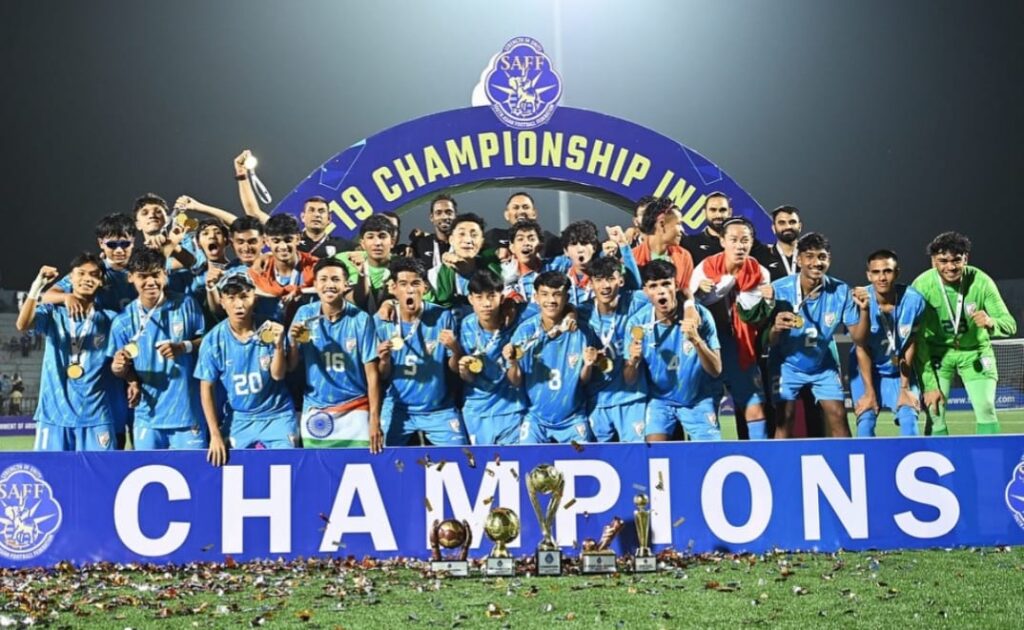
The man who led India to three consecutive AFC U-17 Asian Cup appearances (2018, 2020*, and 2023), Bibiano Fernandes has become a cornerstone in the country’s youth football development. Under his watch, several youngsters have made the leap to professional football and even national senior team contention. Now entrusted with the U-20 side, Bibiano begins a new chapter in his coaching journey. His first assignment? The SAFF U-19 Championship held in May in Yupia, Arunachal Pradesh. With bigger continental dreams in mind—like the AFC U-20 Asian Cup qualifiers and a long-term goal of taking India to a FIFA U-20 World Cup—Bibiano knows the road ahead is steep, but not unfamiliar.
Q: First of all, congratulations on the SAFF U-19 Championship win. Tell us about the preparation that went into this success.
Bibiano Fernandes: Thank you. The preparations actually began in March. Most of these boys were already training with ISL first teams, and some had even made their debuts. The scouting team deserves huge credit—they did a brilliant job identifying talents and bringing them into the trials.
We had a large pool of players to choose from, and the time was limited. But the level of quality really impressed me. What truly helped was that these boys were already exposed to high-level training environments. That definitely played a part in how they managed pressure, especially in the final.
Q: The next big challenge is the AFC U-20 Asian Cup qualifiers. What are your main priorities heading into that competition?
Bibiano: We want to carry this momentum forward. The focus now is on more extensive scouting and giving the boys meaningful exposure before the qualifiers. And exposure doesn’t just mean matches—it’s about immersing them in different football cultures.
Whether it’s facing Arab nations or Southeast Asian teams, each region offers a unique style. So playing against diverse opponents and understanding varied tactical systems will be vital. We have time to plan, and I believe with the right exposure, these boys can get us through to the next stage.
Q: You’ve often spoken about the dream of qualifying an Indian age-group team for the World Cup. What gaps do you feel still need addressing to make that dream a reality?
Bibiano: From my experience with past U-17 and U-20 squads, one noticeable gap has been game intelligence. The technical and physical levels are improving—we matched up well against teams like Japan during the AFC Championship in Thailand.
But decision-making in crucial moments still needs improvement. That comes with playing more high-intensity, meaningful matches at younger age levels—U-13, U-15, U-17. The more game-time they get, the sharper they become. That’s where we need to focus.
For More Sports News Click Here

Q: You’ve had great success with young talents. How do you manage the expectations and pressure that come with this role?
Bibiano: It’s never a one-man show. I have a fantastic team behind me who work tirelessly behind the scenes. From analysts to support staff, everyone contributes. They make my job easier, and their inputs have been invaluable in executing our playing philosophy.
Even during the selection phase, we had good players who couldn’t perform consistently in training, and unfortunately, they missed out. The ones who made it showed commitment every day. That’s what we reward.
Q: A lot of young talents shine early and then fade. What’s your message to this promising bunch of players to sustain their progress?
Bibiano: That’s a very important point. The players who are doing well in ISL now from my previous batches all have one thing in common—they know how to work hard. And make no mistake, working hard is a talent. It’s not just about skills.
In age-group football, you can stand out because the talent pool is limited. But once you step into senior football, you’re part of a much larger, more competitive ecosystem. If you don’t bring 100% in training every day, it becomes very difficult to survive at that level.
My message is simple: train the way you want to play. If you train at 80 or 90%, you can’t perform at 100% on matchday. Every session must reflect the intensity of a real game. That’s how players make the transition from promising youth to consistent professionals.
But coach, as I mentioned earlier, this group needs more game time heading into the AFC qualifiers. Do you think having these players regularly involved in a structured league, like the I-League, is essential?
Bibiano: Absolutely. There is nothing better than regular competitive matches. If these players can participate in the I-League and play 20 to 22 matches a season, they will already be more than halfway ready for international competition.
They’re competing against experienced Indian players and foreigners in every game. That environment forces them to grow. It challenges them to perform consistently, under pressure, and to adapt tactically.
As India continues to seek a breakthrough on the global stage in youth football, Bibiano Fernandes stands at the heart of that ambition. His ability to build cohesive squads, instill tactical discipline, and nurture raw talent has made him a trusted figure within the AIFF’s setup. While the SAFF U-19 title was a strong start, the bigger tests lie ahead—with the AFC U-20 Asian Cup qualifiers looming and a broader vision of taking Indian youth football to uncharted heights.
Also Read: Big Break: MBSG to focus on long-term growth by signing three national team players



